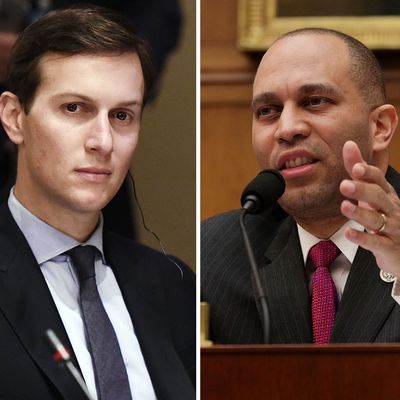
In states around the country, and until recently in Washington, the one promising bipartisan movement flourishing like a desert flower in the midst of severe partisan polarization was the drive to enact criminal-justice-reform legislation. A lot has been accomplished at the state level, where surprising champions like Georgia’s conservative GOP governor Nathan Deal have been recruited.
And even in Congress, a coalition between conservatives worried about prison costs and overweening federal prosecution strategies and progressives determined to reverse the mass incarceration accelerated by a failed “war on drugs,” seemed on the brink of a breakthrough in 2016. Senate Judiciary Committee Chuck Grassley and Democrat Dick Durbin led the charge for federal sentencing reform, generally regarded as the centerpiece of criminal-justice reform. Their bill accumulated 37 Senate co-sponsors from both sides of the aisle, and while not as comprehensive as some reformers would have wished, it did tackle the drug war’s big legacy of mandatory minimum sentences for nonviolent offenses. But then the 2016 election cycle happened, as I observed at the time:
[W]ith the 2016 elections pending, the junior U.S. senator from Alabama began raining on the criminal-justice-reform parade, attacking pending Senate legislation on both traditional war-on-drugs grounds, and the new claim that America was being subsumed in a new “crime wave.” Jeff Sessions’s close friend Donald Trump was soon echoing the claim that violent crime was sweeping the nation (untrue, but also hard to refute in the wake of homicide spikes in many cities), while his Senate wing man Tom Cotton of Arkansas argued the real problem with the criminal-justice system was “under-incarceration.” Revisions to the main Senate bill on sentencing reform to ensure violent offenders did not benefit kept some jittery conservatives onboard — but not Sessions. Partly due to Sessions’s and Cotton’s demagoguing on the issue, Mitch McConnell shelved action on the bill for the year.
When Sessions became Trump’s attorney general, prospects for broad-based criminal-justice reform at the federal level darkened, though proponents kept up their efforts.
Perhaps the best initial sign that criminal-justice reform might not be entirely dead was the interest expressed by presidential son-in-law and adviser-with-a-wide-ranging-portfolio Jared Kushner, who was reportedly drawn to the subject by his father’s experience (after convictions including for tax evasion) from the wrong side of the bars in the federal correctional system. But Kushner’s angle on reform, flowing from his assignment as a sort of government efficiency czar, was inevitably focused on the more limited issue of prison operations and prisoner release policies, not sentencing.
And so, with the Trump administration and its closest allies still unwilling to undertake a broader initiative, a Kushner-inspired prison reform bill — a half-loaf at best in the eyes of most criminal-justice reformers — was just approved by the House (by a 360–59 margin) and faces an uncertain future in the Senate.
The so-called First Step Act (a reference to its authorization of new spending for prisoner reentry programs, but also a pretty good description of its relationship to broader reform legislation according to proponents of both) has aroused some visible opposition from progressive Democrats, including civil-rights leader John Lewis and former attorney general Eric Holder and Senators Dick Durbin, Kamala Harris, and Cory Booker. But a big majority of House Democrats backed the First Step Act, and its principle House Democratic cosponsor, New York City’s Hakeem Jeffries, has pushed back strongly against the naysayers, as The Atlantic’s Russell Berman reports:
In an interview, Jeffries criticized what he called the “all-or-nothing approach” of the bill’s opponents and said they were unrealistic to think a broader sentencing-reform package could make it into law with Republicans in control of Congress, Trump in the White House, and Sessions atop the Justice Department. “There is no possibility of meaningful sentencing reform at this time,” Jeffries told me.
Beyond the intra-Democratic fight over the prison reform bill, Republicans have their own issues that may produce bigger problems for Senate action. Chuck Grassley said this week that for any criminal justice reform bill to get through the Senate, “it must include sentencing reform.” Meanwhile, rising to his usual role as one of the big villains of the reform saga, Senator Tom Cotton, who once memorably said America has an “under-incarceration problem,” is reportedly stirring up opposition to the prison reform bill among law enforcement groups. And as has been the case all along, Mitch McConnell is unlikely to bring the House bill to the floor so long as Republicans are divided over it. Politico has adjudged the bill as “DOA in the Senate.”
Sounds like, as a real “first step” toward getting something done, Jared Kushner ought to talk his father-in-law into backing a broader criminal-justice reform effort. It’s not like the past nemesis of this approach, Attorney General Jeff Sessions, has the White House juice to fight back very effectively. And there are plenty of conservatives who can provide partisan and ideological cover for such a move. Otherwise, the whole effort is likely to collapse as a symbolic and not terribly sincere gesture.






























